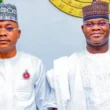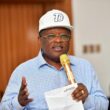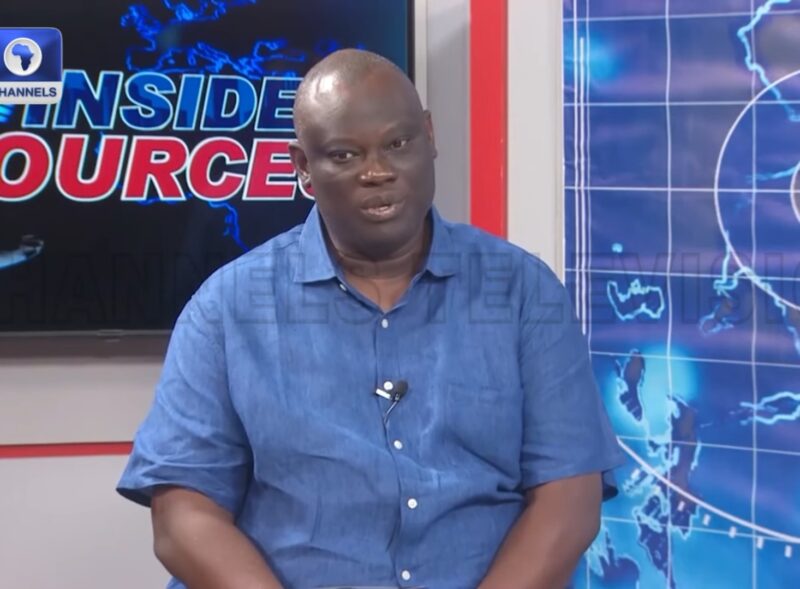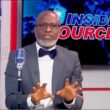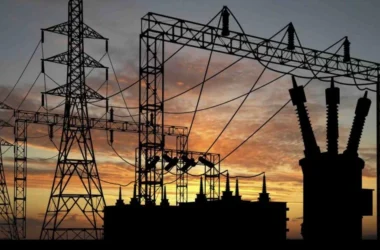Security experts appearing on Inside Sources with Laolu Akande, a Channels TV current affairs programme, have warned that Nigeria is engaged in a protracted religious and jihadist war disguised as an insurgency, cautioning that the country risks further deterioration unless it urgently rethinks its security and ideological response.
Mr. Dahiru Mojeed, a newspaper columnist and analyst, dismissed the widely held belief that the insurgency ever truly receded. “Insurgency never left us,” he said. “When you say insurgency is back, I’m wondering whether there was a break.” According to Mojeed, what many mistook for peace was merely a tactical pause in a prolonged war. “There are moments when warring factions hibernate, regroup, and then return with renewed aggression. This is the nature of war,” he explained.
“Now one thing that the Nigerian state must do to contain the ideology behind this insurgency is to carry out, if you like, a reform of the belief system of the people concerned within the larger society. When you say the people concerned? The Muslim community in Nigeria, if you like. The larger society. “Because I keep making the point that part of the ideological elements that are responsible for the insurgency we are seeing are actually in the mainstream and are still being watered by mainstream authorities. So from the ideological fundament, something needs to be done. And done urgently,” he noted.
Mojeed criticized the government’s continued reliance on conventional military tactics in what is clearly an unconventional war. “We cannot continue to fight an asymmetrical war with symmetrical methods. This is a jihadi war—religiously motivated terrorism—and we must begin to treat it as such,” he stressed.
He argued for a “holistic approach” to combating insurgency, saying that a key part of this strategy should be ideological. “We must reform the belief systems that support extremism. And when I say reform, I mean confronting some of the ideas that exist even within the mainstream Muslim community that are enabling this violence.”
Mojeed pointed to the ideological roots of jihadist terrorism, claiming that certain strains of thought prevalent in mainstream religious institutions are quietly nurturing extremist ideologies. “The Nigerian state must reassert itself—not just on the battlefield but in the hearts and minds of its citizens,” he said.
Echoing Mojeed’s concerns, Mallam Baba Yusuf, CEO of Global Investment Trade Co. Ltd, offered a sweeping analysis of the insurgency’s multidimensional character. “It never went away. What we are witnessing is not a resurgence—it’s the continuation of a well-planned jihadist campaign,” he said.
According to Yusuf, the insurgents are not acting randomly but are executing a long-term, well-resourced strategy of guerrilla warfare rooted in Islamic fundamentalism. “This is the classic playbook of jihadist groups across the world—from the Middle East to Africa,” he noted, warning that many Nigerians and even security agencies still fail to grasp the ideological and commercial dimensions of the conflict.
“The terrorism we face has morphed into a global enterprise,” Yusuf continued. “It is no longer just about religion; it is now a commoditized business model. The jihadist network is used as a smokescreen for resource plundering by global interests and local collaborators.”
He pointed to alarming levels of sophisticated equipment and logistics among insurgent groups, suggesting that their access to arms, satellite communication devices, and vehicles surpasses that of the Nigerian military. “We are no longer fighting asymmetric warfare. The terrorists have the upper hand in strategy, technology, and logistics,” he said.
Yusuf painted a bleak picture of Nigeria’s security landscape, describing it as overwhelmed by a “multidimensional octopus” comprising jihadist groups like Boko Haram, ISWAP, and local militias who now engage in mergers and acquisitions much like corporations do. “These groups are not just fighting—they are forming alliances with illegal miners, cross-border smuggling networks, and foreign interests to plunder Nigeria’s resources,” he warned.
He emphasized that the Sahel region, including parts of Northern Nigeria, is rich in untapped resources that have attracted global exploitation cloaked in religious extremism. “It’s no coincidence that similar things are happening in the DRC, Sudan, and South Sudan. The pattern is the same—exploit the chaos to loot resources.”
The experts agreed that unless Nigeria discards the “linear prism” through which it views security threats and adopts a broader, multidimensional strategy, the country will continue to lose ground. “We must build a sensing and surveillance system, similar to what the U.S. did after 9/11. Homeland security must be local, strategic, and ideological,” Yusuf said.



